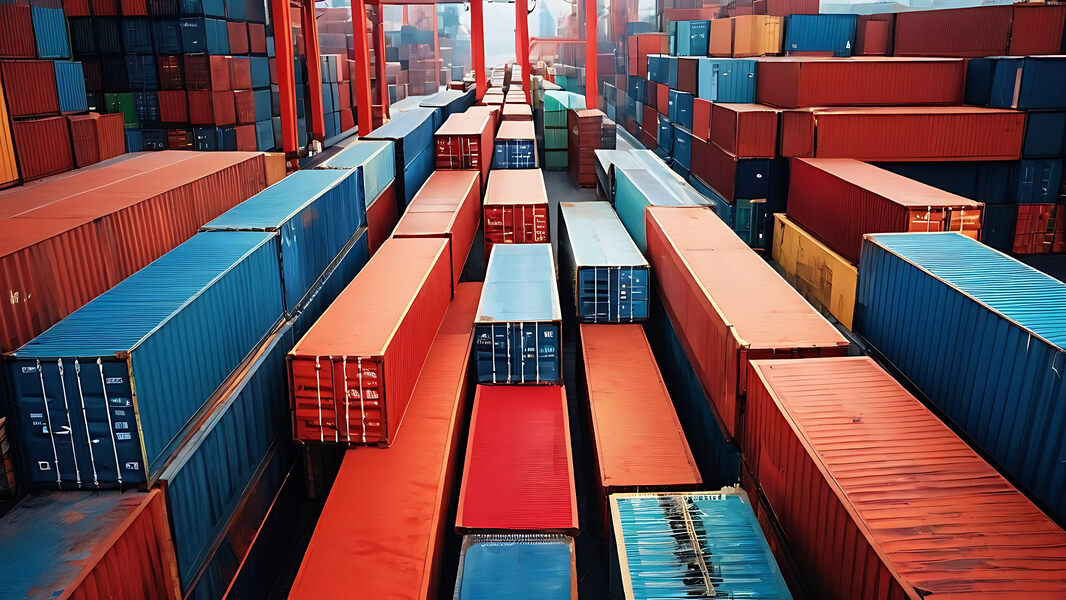Buying your way into entrepreneurship: the dss+ journey
How a private equity-backed corporate carve-out created a successful, sustainable consulting powerhouse...

by Simon J. Evenett Published November 6, 2024 in Competitiveness • 5 min read
It would be a mistake to associate this inward turn only with Republican politicians; the Biden Administration took various measures in May 2024 to restrict US market access to imports and the new administration post the November 2024 election may accelerate protectionist measures.
Given that the US imports more than $3tn worth of goods each year, loss of access to the US market would have a significant adverse impact on the top-line revenue of many foreign firms.
But sectors differ in their exposure to US markets in both absolute and relative terms, so blanket statements about exposure to America’s inward turn are unwise. Using international trade data that leverages the UN method of grouping products into “chapters,” a recent Global Trade Alert briefing analyzes which foreign suppliers are most dependent on US market access and therefore are most vulnerable to further protectionist measures.
A foreign sector is more vulnerable to the loss of access to the US market when:
The following suppliers to the US are deemed to be the most vulnerable to high tariff charges or restricted market access:
By contrast, the following sectors are less exposed to potential tariff increases:
In eight sectors, growth in imports of non-US products is so weak that full replacement of lost US market sales would, on current trends, not take place until after 2035.
This highlights the importance of penetrating and growing market share in alternative export destinations to hedge against the potential loss of US market access. Geographic sales diversification can help mitigate this trade policy risk.
Even if the US does not escalate its recent policy of imposing higher import barriers, increased trade policy uncertainty will take its toll on investment, market entry, and sourcing decisions. Fortunately, there are plenty of commercial opportunities beyond US markets.

Professor of Geopolitics and Strategy at IMD
Simon J. Evenett is Professor of Geopolitics and Strategy at IMD and a leading expert on trade, investment, and global business dynamics. With nearly 30 years of experience, he has advised executives and guided students in navigating significant shifts in the global economy. In 2023, he was appointed Co-Chair of the World Economic Forum’s Global Future Council on Trade and Investment.
Evenett founded the St Gallen Endowment for Prosperity Through Trade, which oversees key initiatives like the Global Trade Alert and Digital Policy Alert. His research focuses on trade policy, geopolitical rivalry, and industrial policy, with over 250 publications. He has held academic positions at the University of St. Gallen, Oxford University, and Johns Hopkins University.
April 16, 2025 • by Benoit F. Leleux in Sustainability • 9 min read
How a private equity-backed corporate carve-out created a successful, sustainable consulting powerhouse...
April 14, 2025 • by Salvatore Cantale, Frederikke Due Olsen in Sustainability • 14 min read
By managing ESG-heavy assets separately, companies can drive progress in their sustainable business units while addressing the sustainability challenges of traditional assets. Here are four effective strategies to achieve your goals....
 Audio available
Audio availableApril 8, 2025 • by Andrew J. Hoffman in Sustainability • 11 min read
Business schools must cultivate leaders who see beyond profits and embrace business as a powerful force for societal good....
March 27, 2025 • by Robert Earle, Karl Schmedders in Sustainability • 7 min read
Subsidies for renewables have led to electricity prices frequently falling to less than zero, creating opportunities for consumers....
March 21, 2025 • by Natalia Olynec in Sustainability • 6 min read
Once viewed as corporate activists championing green initiatives, today’s CSOs are business integrators – balancing financial performance with societal impact....
March 13, 2025 • by Cedrik Neike in Sustainability • 6 min read
Digital technologies, and artificial intelligence in particular, allow us to extract insights from data. This will allow industrial companies, the backbone of our economy, to be more resource-efficient, more productive, and more...
February 25, 2025 • by Salvatore Cantale, Christos Cabolis in Sustainability • 6 min read
While some firms may look to exploit regulatory arbitrage in response to the Corporate Sustainability Reporting Directive (CSRD), long-term trends point to regulatory alignment and technology advances making EU sustainability reporting rules...
February 18, 2025 • by José Parra Moyano in Sustainability • 7 min read
As AI continues to reshape industries, businesses must navigate the balance between automation and human contribution. This article explores how AI can drive sustainability while empowering both employers and employees through data...
February 18, 2025 • by James Welch in Sustainability • 8 min read
A five-step approach to help leaders foster sustainable legacies and social progress, while supporting financially sound futures for their organizations....
 Audio available
Audio availableFebruary 17, 2025 • by Salvatore Cantale in Sustainability • 5 min read
More than simply a compliance exercise, sustainability reporting regulations offer a chance to develop and strengthen your business, says IMD’s Salvatore Cantale...
Explore first person business intelligence from top minds curated for a global executive audience